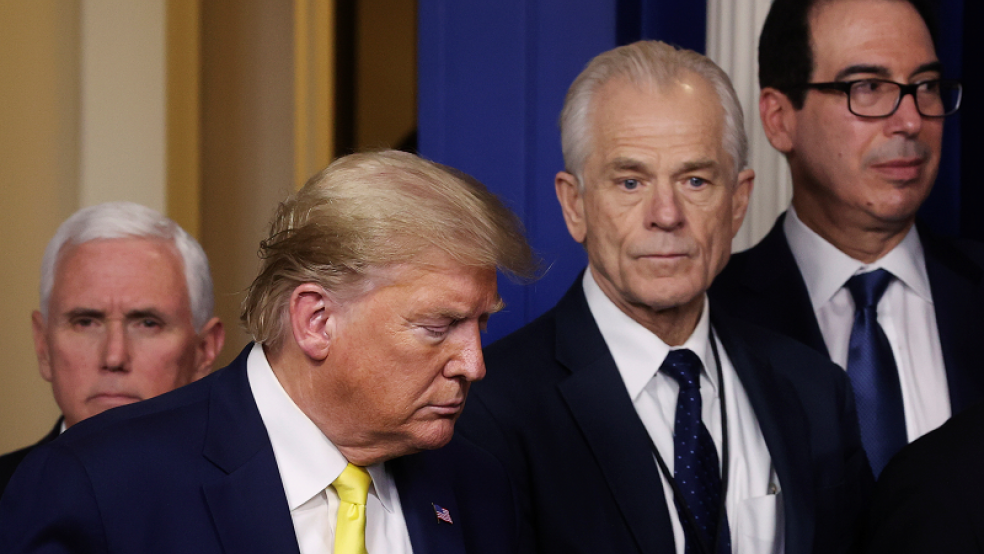At the beginning of the week, we pointed out that White House trade adviser Peter Navarro had said in a couple of television interviews last Friday and Saturday that President Trump wants a manufacturing-focused stimulus package “on the order of at least $2 trillion.”
But this is Trumpworld, where fractious infighting is more than norm than planned and coordinated policy rollouts, so The Washington Post’s Jeff Stein reports that Navarro’s comments came as a surprise to other administration officials and “appeared to be a sharp departure from what other White House officials were considering.” Stein reports that congressional Republicans and administration officials downplayed Navarro’s television comments. “Navarro speaks for Navarro,’ one unnamed senior administration official said. Another offered this simple explanation: “Peter went rogue.”
Two unnamed senior administration officials told the Post that the administration is more likely to support a stimulus plan costing around $1 trillion.
‘Widening White House fissures’ over a recovery plan: Navarro’s apparent freelancing, and the “startled” reaction to it, illustrate just how far the White House has yet to go to overcome what Stein calls “widening White House fissures” over the economic recovery and a next stimulus plan.
“A number of advisers want to reconsider the tremendous amount of spending that they are pumping into the economy, but they face growing demands from economists and Federal Reserve Chair Jerome H. Powell to spend more to prop up the economy,” Stein writes. “President Trump and his senior economic advisers have said they want to pass additional stimulus legislation, but jockeying over that package has intensified as ideological rivals within the administration vie to shape it.”
Among those efforts, acting budget director Russell Vought and Mick Mulvaney, the former acting chief of staff, have reportedly proposed measures that would require long-term reductions in the deficit to be part of any plan.
Negotiating over the negotiators: The jockeying reportedly includes some pressure from conservative GOP lawmakers and activists to have Vice President Mike Pence or Chief of Staff Mark Meadows take on a bigger role in the dealmaking, amid complaints that the packages negotiated thus far with Treasury Secretary Steven Mnuchin as the administration’s point person “have been too generous to Democrats and allowed spending and other policy changes that run counter to GOP priorities.”
The bottom line: At a point when many economists say the economy still needs significant additional support, we’re still a long way away from a next stimulus package. Many of the White House’s priorities for the next bill aren’t clear, and those that are face substantial resistance.
“At this point, there is not a concrete White House proposal, in part because different economic advisers keep floating different — and at times contrasting — ideas,” Stein writes. “The White House has not reached a final decision on whether it supports an infrastructure package; aid to state and local governments; another round of $1,200 stimulus checks; delaying the tax filing deadline beyond July 15; and a fix to the coming expiration of additional unemployment benefits, among other issues. Although it is clear Trump is eager to pass a payroll tax cut, a cut to taxes on capital gains, and deductions for the restaurant and entertainment industries, the administration has not formulated a concrete proposal, and these ideas have largely been dismissed by congressional lawmakers.”





